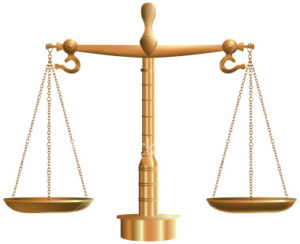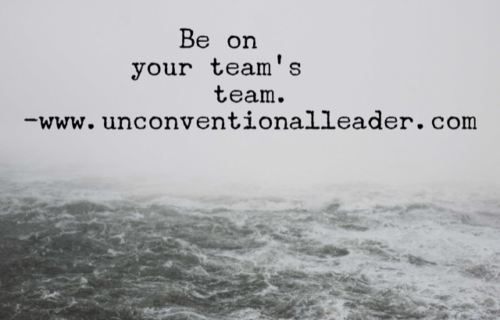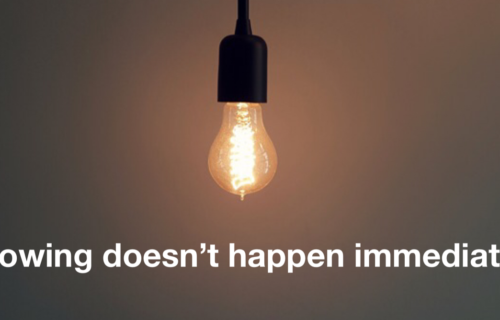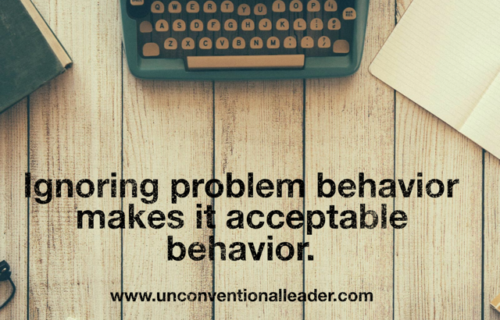
Do You Care?

 We as leaders can’t make our people happy. Happiness is a personal choice. What we can do is manage the mood – the “how people feel” about their work, their contribution, and the organization. As a young division officer, I inherited a department that had low morale, low productivity, and even lower initiative. Most of the people assigned had been “written off” as no loads and it seemed as if a black cloud of negativity hovered over them. My first week, as I got to know the people and what they did (or were supposed to do), I tried to figure out what was missing. It’s not that this team wasn’t capable or even willing, vital elements were missing from their work existence, elements that let them know how they fit in and where they provided value. All I needed to do to boost the mood was show a little CARE.
We as leaders can’t make our people happy. Happiness is a personal choice. What we can do is manage the mood – the “how people feel” about their work, their contribution, and the organization. As a young division officer, I inherited a department that had low morale, low productivity, and even lower initiative. Most of the people assigned had been “written off” as no loads and it seemed as if a black cloud of negativity hovered over them. My first week, as I got to know the people and what they did (or were supposed to do), I tried to figure out what was missing. It’s not that this team wasn’t capable or even willing, vital elements were missing from their work existence, elements that let them know how they fit in and where they provided value. All I needed to do to boost the mood was show a little CARE.
Communication
My division hadn’t been communicated with about their mission. They didn’t know how what they did fit into the overall mission of where the organization was going. To them, everything was a pointless mess of metrics, reports and taskers. What was needed was the “how and “why.” My predecessor had made the critical assumption errors of assuming team members knew what it is they needed to do, how to do it, and what was expected of them. We can never assume! We must provide clarity, purpose and value – then and only then can we let go and empower them to make a difference. Do you want to see a dramatic upturn in team mood? Work to bridge the gaps with solid communication. This can’t be a one time chat – it must be a continual dialogue (think real conversation).
Accountability
More often than not, we think of accountability as being about someone else. As a leader, accountability starts with us. We can do all we want in trying to communicate to our people but that’s not enough, we also need to walk that talk. There is no better testimony to our team about ethics, trust, openness, and consistency than personal example. I had to openly show my team that I not only expected high standards from them, I expected them from myself as well. If they were working late, I was working late. I expected nothing from them that I wasn’t willing to give. Our ability to know what we stand for and openly live those values aligns us with our team so that they know, no matter what, you can be listened to and trusted.
Rewards
Each one of us keeps a psychological contract with our organization that says that the level of effort should be commensurate with the amount of rewards that are received. It can be equated to a scale that works to keep us balanced. If I am working hard, I should get rewarded for it. If I don’t see the reward, my scale gets out of balance and my productivity, motivation, and morale go down. Prior to my arrival, most team members felt like doing a good job was like peeing their pants in dark suit (it gave them a warm feeling but nobody noticed). The rewards plan that we implemented was well communicated, distributed, and publicized. Everyone knew what warranted rewards and how he/she could get on board with getting them because they were involved in the process. Very quickly, the scale got balanced and everything we had been missing started taking shape. A simple, low cost incentive that anyone can do right now is to just show some simple appreciation. Acknowledging a contribution or saying “thank you” goes a long way in telling team members their value.
Enlightenment
We spend the bulk of our awake hours at work. Keeping that in mind, work should be more than a place that provides a paycheck, it should be a place where we, as human beings, can flourish. That means that we, as leaders, have to continually connect with our people on a human level – disregarding the titles and positions that separate us and look for ways we can unite on common ground. I worked along side my team and coached them through every difficult maneuver. Anything we did, we did together and all team members benefited, either directly or indirectly. Working towards enlightenment and human flourishing not only allows for an open dialogue and an ability to achieve more, it also allows team members to get past the issues they might be facing in other areas of their lives because they know they are not alone. Being on YOUR team should be about more than the pay. Make it personal!
Due to a little CARE, in less than six months my “rag tag” bunch of misfits overcame the odds and beat out every other region in the areas that we could compete on. Our department’s morale, productivity, and individual engagement soared. We went from being the team that no one wanted to be on to one that people continually fought to join. As I stated before, we can’t make our people happy but we can manage the mood of how people feel about where it is they spend most of their time. That’s the impact YOU can have! CARE comes down to clarity and purpose – letting your team know their value and their worth! DON’T WAIT! STEP UP, STEP OUT AND SHOW ‘EM THAT YOU CARE!





